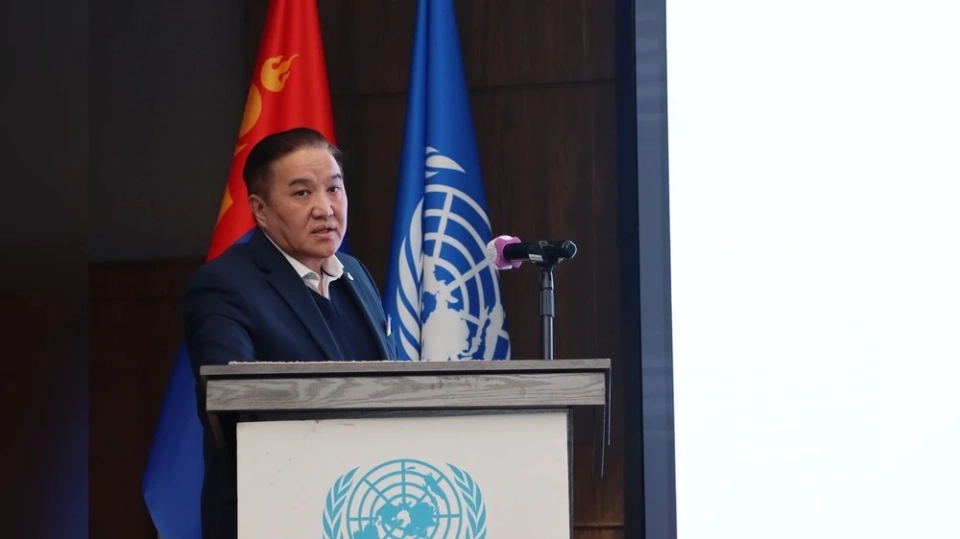Mongolia Holds UN Consultations on the Implementation of the Awaza Program for Landlocked Developing Countries
On November 4, a consultative meeting was held at the UN House, organized by the Ministry of Foreign Affairs of Mongolia in collaboration with the Office of the UN Resident Coordinator and the International Analytical Center for Landlocked Developing Countries. The meeting discussed the implementation of the Awaza Action Program, covering the period from 2024 to 2034. Details were published on the official page of the ministry on Facebook.
The Awaza Action Program was approved by the UN General Assembly in December 2024 and received endorsement at the Third UN Conference held in Awaza (Turkmenistan) in August 2025. It includes a decade-long framework aimed at addressing the unique development challenges faced by 32 developing landlocked countries.
Multilateral negotiations that took place in New York from January to June 2024 under the joint chairmanship of Mongolia and Austria played a key role in the development of the Action Program. Representatives from Mongolia's government structures, civil society, the academic community, and international organizations participated in the discussions. They examined the opportunities and challenges facing Mongolia in the context of the five priority areas of the Awaza Action Program and exchanged views on ways to implement it.
The main report was delivered by Enkhbold Vorshilov, Ambassador Extraordinary and Plenipotentiary, who previously served as Mongolia's Permanent Representative to the UN. He noted that as of 2022, developing landlocked countries accounted for only 1.1% of the total volume of global merchandise exports, 0.7% of service exports, and 0.3% of digital services, highlighting the persistent structural problems hindering these countries' integration into the global economy.
The meeting also included representatives from the UN Economic and Social Commission for Asia and the Pacific (ESCAP), the UN Office of the High Representative for the Least Developed Countries and Small Island Developing States, as well as experts from Mongolia's transport, logistics, and customs sectors, including scholars from the National University of Mongolia and the Mongolian University of Science and Technology.
Participants in the discussions emphasized the importance of integrating the recommendations of the Awaza Action Program into national development strategies, creating a clear roadmap for its implementation, and strengthening international and intersectoral cooperation. The meeting also featured a presentation of the Awaza Action Program in the Mongolian language.
Read also:
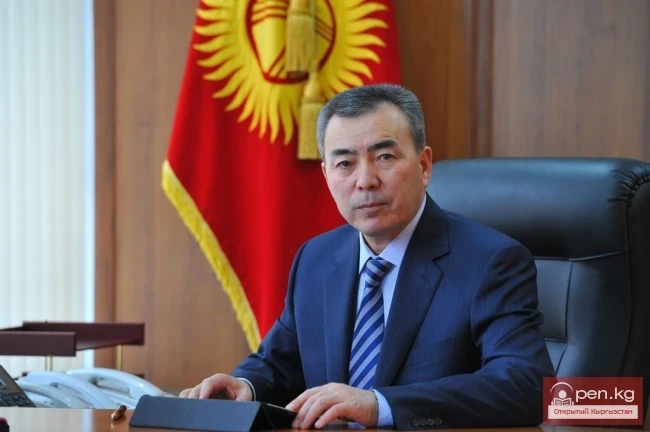
Second Conference of the United Nations on Developing Countries
In the Austrian capital, Vienna, on November 3, 2014, the Second Conference of the United Nations...
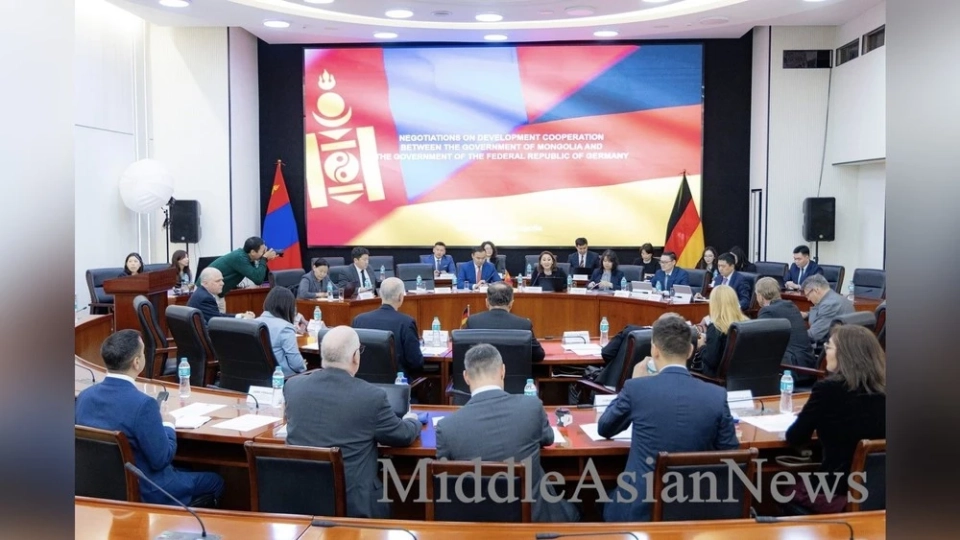
Germany allocates €43.1 million to support Mongolia's strategic reform program. Video
At a meeting held on October 30, 2025, in Ulaanbaatar, the government of the Federal Republic of...
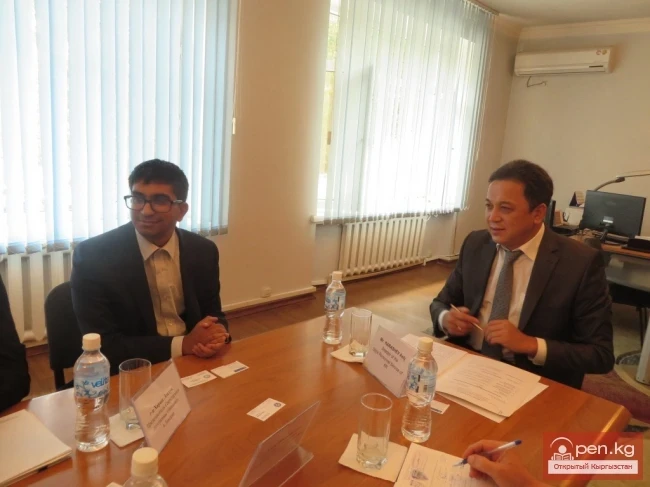
The State Personnel Service of the Kyrgyz Republic assists in the implementation of the "Chevening" program in Kyrgyzstan.
This was discussed at a meeting between the Director of the State Personnel Service of the Kyrgyz...
Kyrgyzstan Could Transition from a Landlocked Country to a Transit Country, According to an Expert
Igor Golubev, Deputy Head of the Association of International Freight Transport, proposed a new...
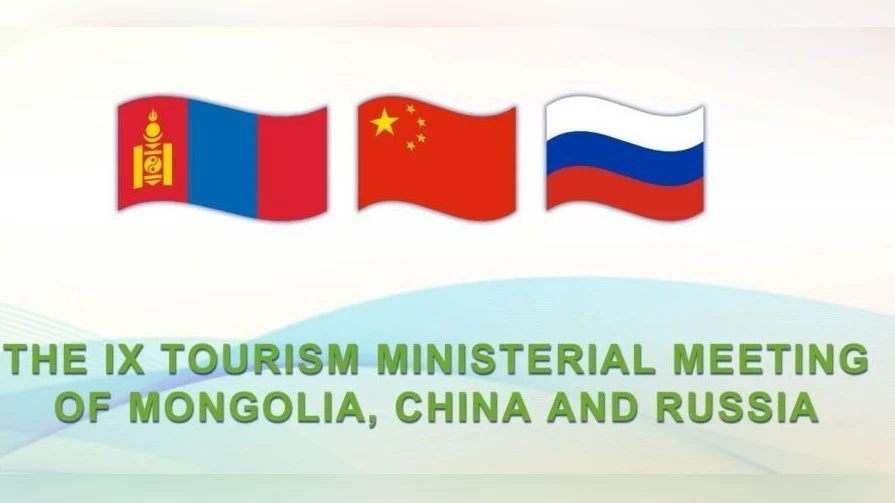
The IX Meeting of the Ministers of Tourism of Mongolia, China, and Russia Will Take Place
The IX Meeting of the Tourism Ministers of Mongolia, China, and Russia will be held on November 7,...
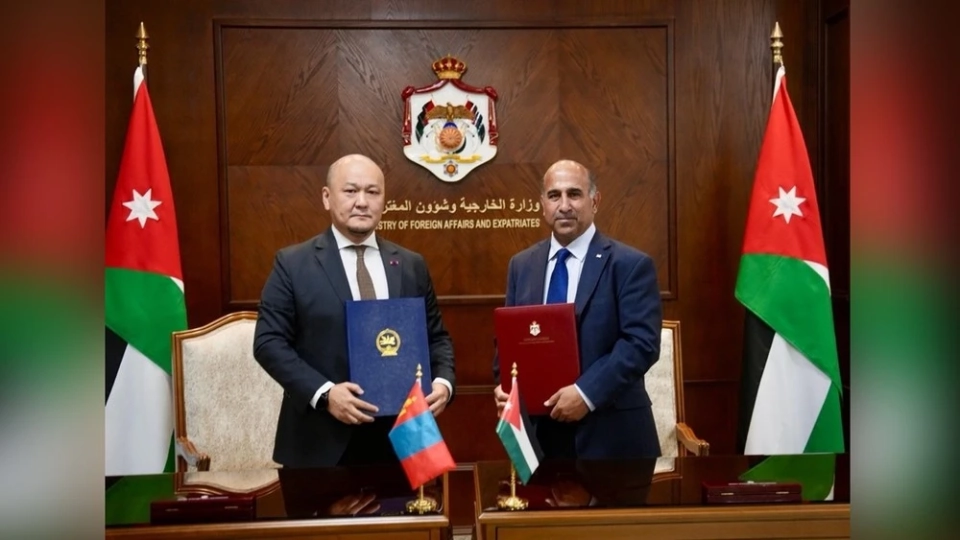
Mongolia and Jordan Held Their First Political Consultative Meeting in Amman
At the meeting, the Mongolian delegation was welcomed by the Secretary General of the Ministry of...
Vice President of EBRD M. Patrone spoke about the implementation of the "Green Cities" program in Kyrgyzstan
On October 29, 2025, a meeting was held in Bishkek with Matteo Patrone, Vice President of the EBRD,...
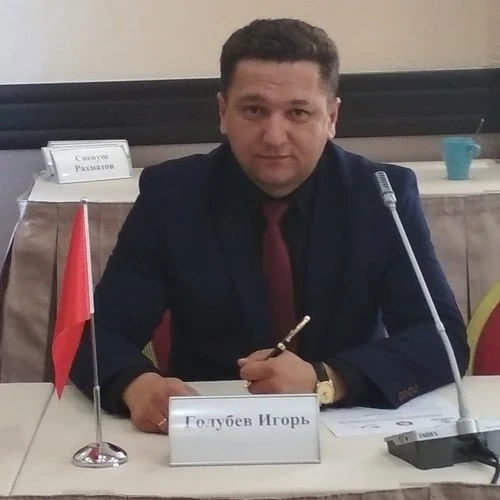
Igor Golubev: Kyrgyzstan Should Have Its Own Navy
At the KyrgyzTransLogistic 2025 exhibition, held on the international stage, Igor Golubev, who...
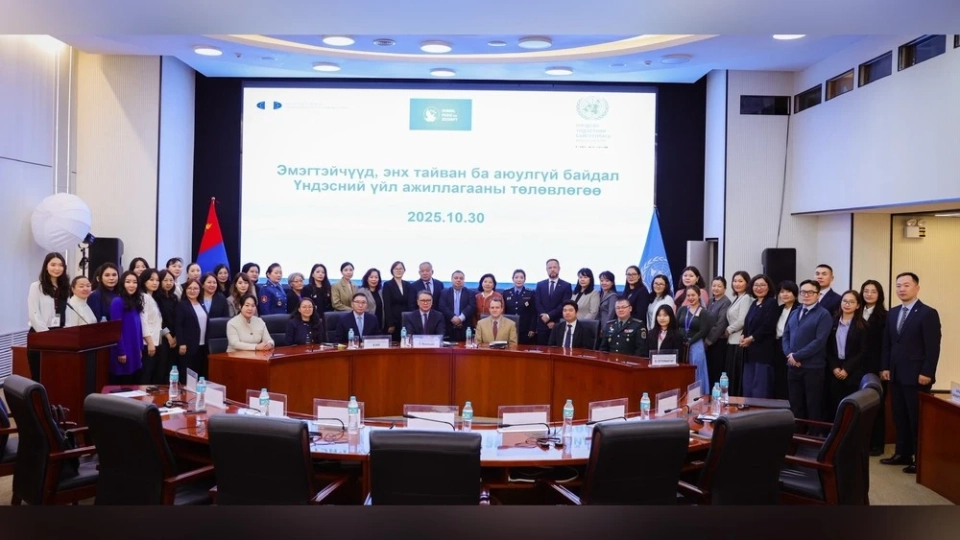
Discussed the National Action Plan on Women, Peace, and Security
On October 30, the Ministry of Foreign Affairs initiated an event aimed at developing a National...
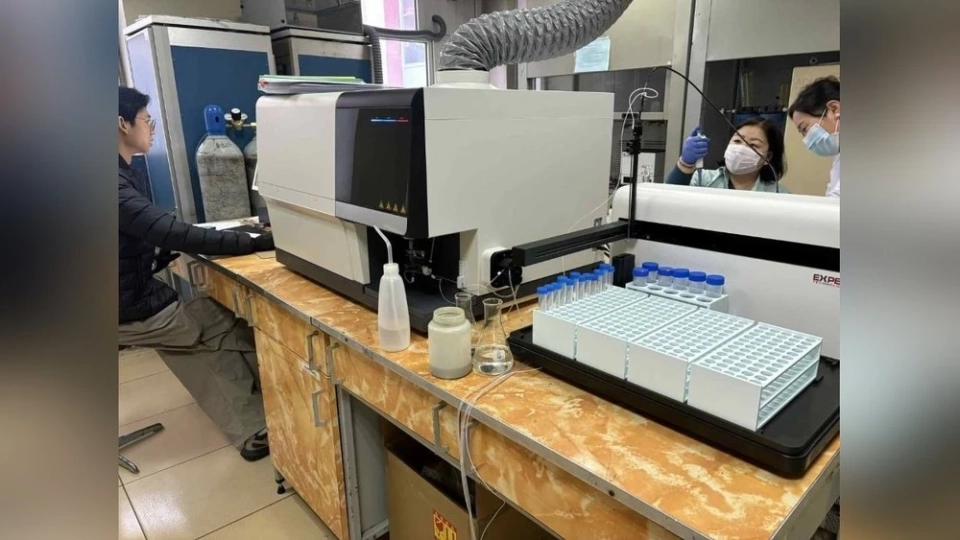
The Central Laboratory is now capable of detecting 70 types of heavy metals across Mongolia
The laboratory previously could only analyze eight types of heavy metals, as specified in the...
In Bishkek, preparations have begun for the launch of a waste incineration plant
An off-site meeting was held in Bishkek under the leadership of Deputy Mayor Ramiz Aliyev at the...
Kyrgyzstan Became Co-Chair of the "One Health" RCS Program
On October 29 and 30, a regional conference took place in Dushanbe, dedicated to issues of pandemic...
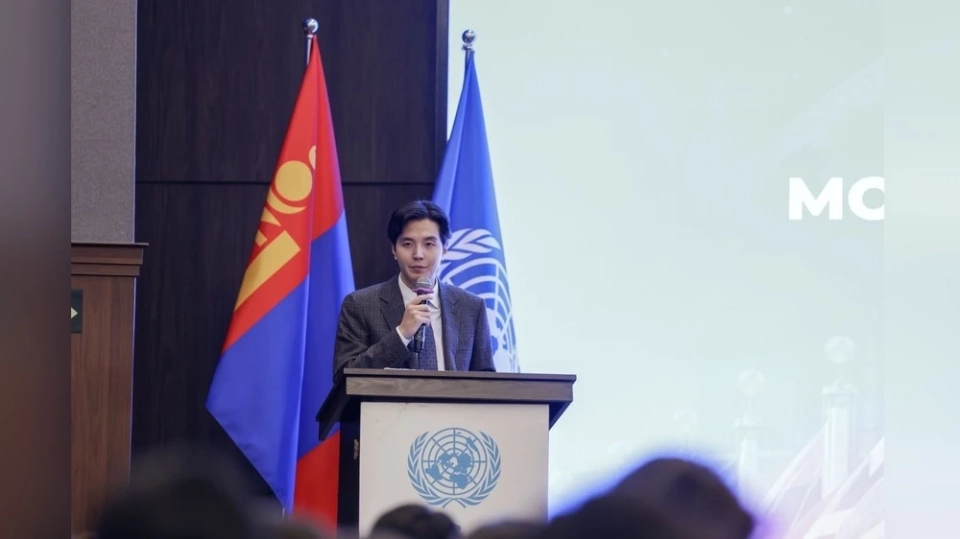
Event "Youth in Diplomacy," organized to commemorate the 80th anniversary of the UN
The opening ceremony of the event began with speeches by Jaap van Hirdan, the UN Resident...
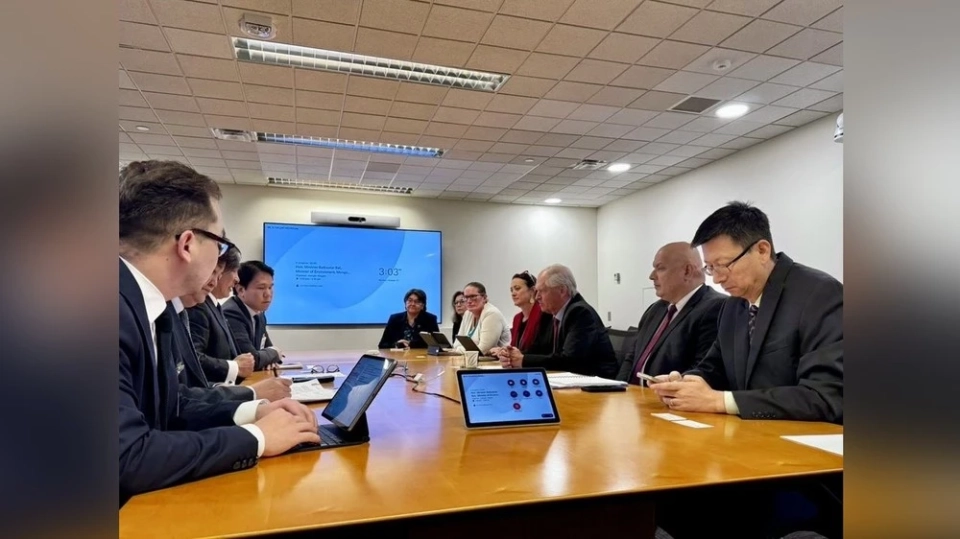
The World Bank will assist Mongolia in preparing for COP17
Discussions focused primarily on preparations for the 17th Conference of the Parties (COP17) to...
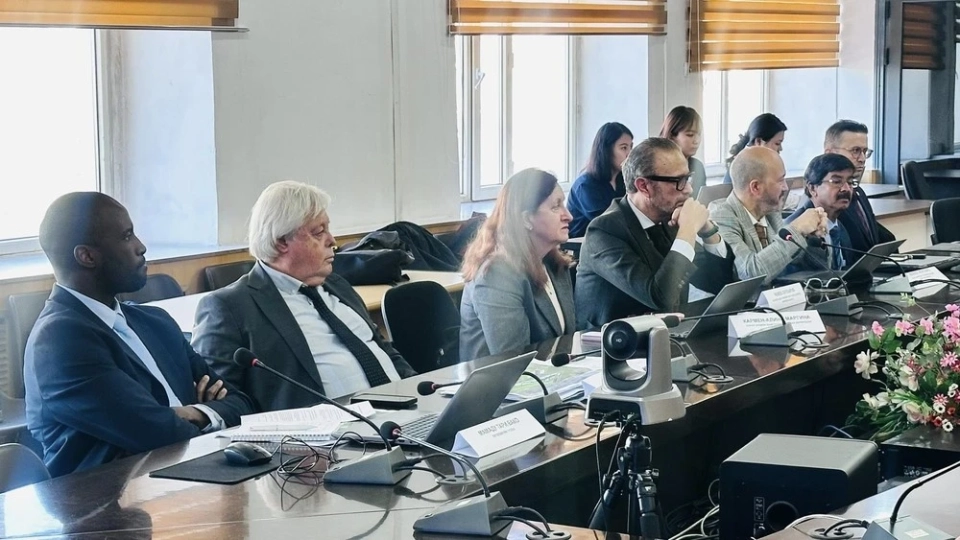
Mongolia and the UN CBD Secretariat Join Forces to Promote the Country Ahead of COP-17
As part of its activities, the planning group is responsible for coordinating the "Agreement...
The Theaters of Kyrgyzstan, Malaysia, and Mongolia Held a Meeting for Experience Exchange in Korea
Recently, an event took place in Korea that brought together theater leaders from Kyrgyzstan,...
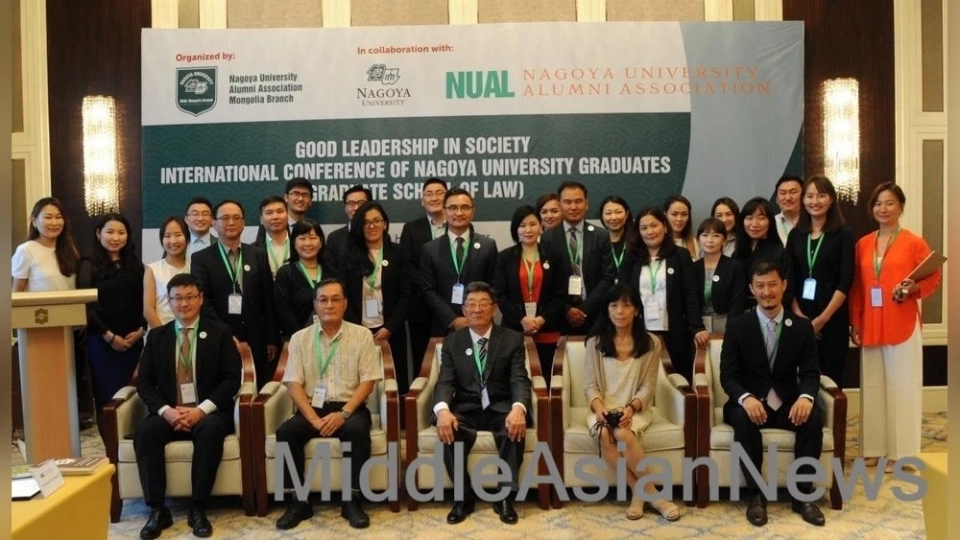
Nagoy University Expands Doctoral Program for Public Servants in Mongolia
Mongolian civil servants will soon begin serving their citizens according to Japanese standards....
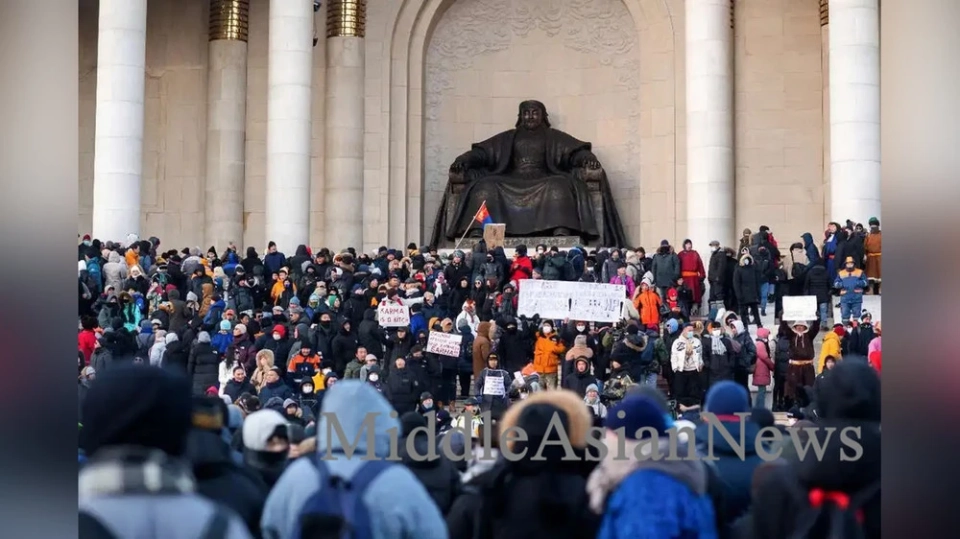
The Universal Periodic Review (UPR) will examine the human rights situation in Mongolia and will be broadcast live.
The assessment of the human rights situation in Mongolia will be conducted by the Working Group on...
Kyrgyzstan to Create a Multimedia Exhibition About Its History at the National Museum of Genghis Khan in Mongolia
The National Historical Museum has initiated a tender for the development of a permanent multimedia...
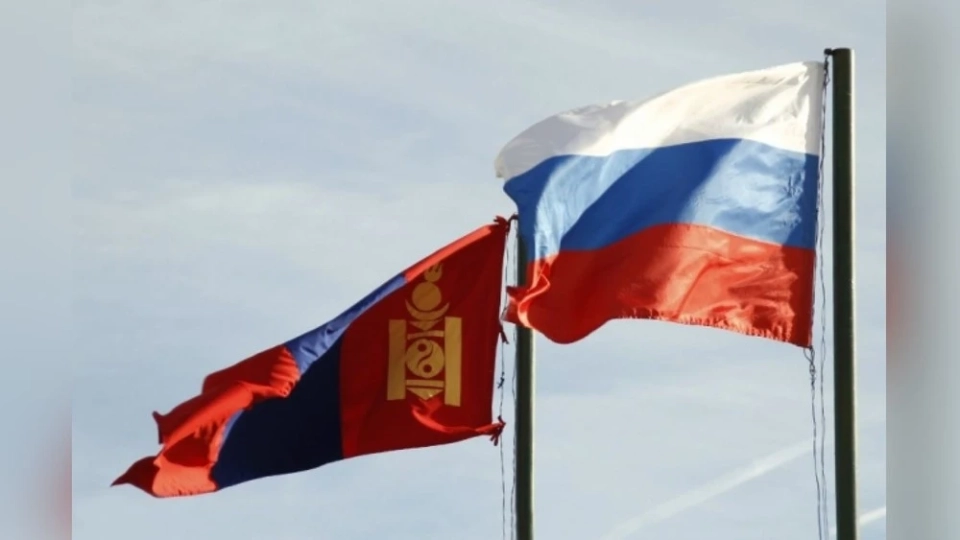
An Expert Assessed the Economic Potential of Cooperation between Russia and Mongolia
The expert noted that the opportunities for developing cooperation between Russia and Mongolia are...
Kyrgyzstan, together with partners, launches a project to support mountain regions
A recent meeting held by the special representative of the President of Kyrgyzstan for the...
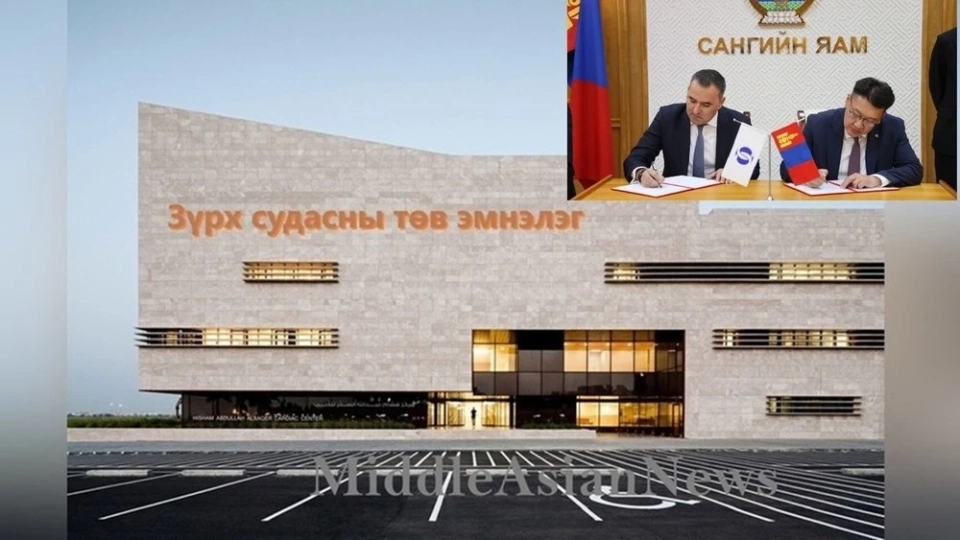
EBRD finances the construction of a cardiovascular hospital in Mongolia
EBRD has allocated a loan of up to US$ 34.9 million for the establishment of a cardiac surgery...
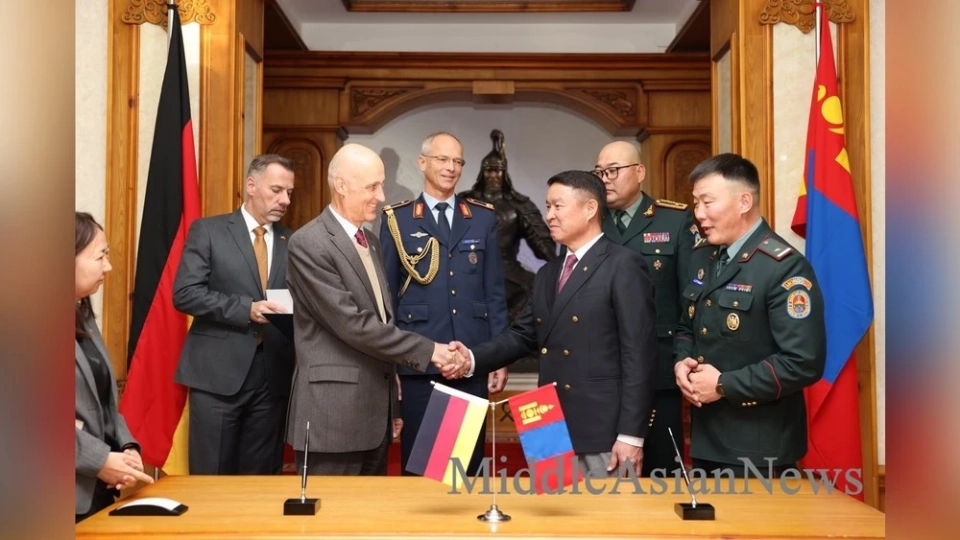
Germany will provide Mongolia with assistance in military training as part of a new defense agreement
The long-term cooperation agreement between the Ministry of Defense of Mongolia and the Federal...

Unforgettable Mountain Kyrgyzstan
The Most Beautiful and Inexpressible Nature of Kyrgyzstan Kyrgyzstan has no access to the sea....
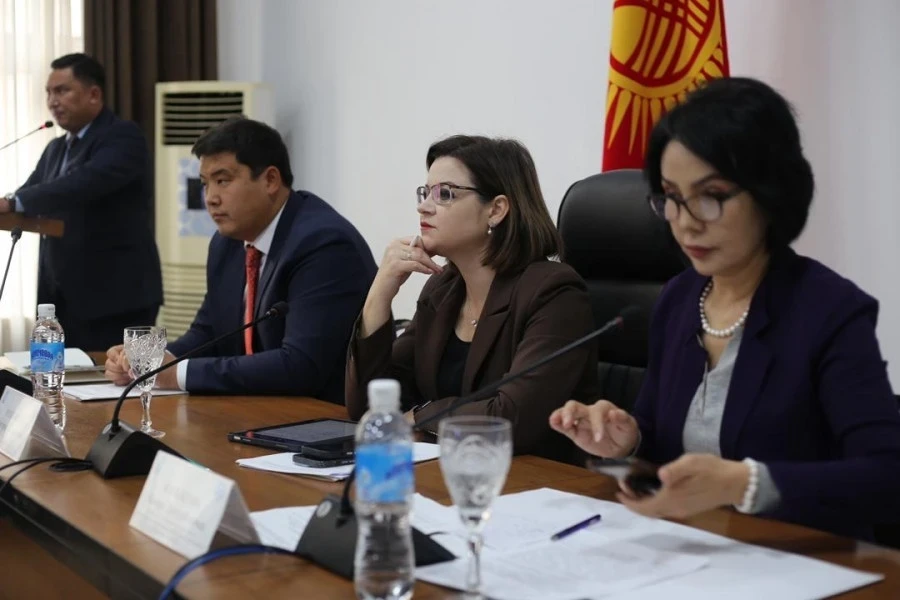
At the Bishkek City Hall, issues of religious and interethnic relations were discussed
A coordination meeting was held in Bishkek under the leadership of Viktoriya Mozgacheva, the...
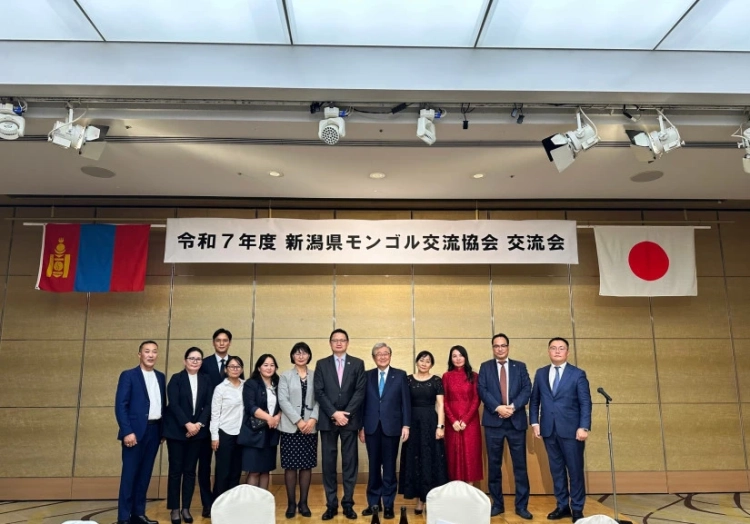
The Ambassador of Mongolia urged Japan's Niigata Prefecture to cooperate with the aimags of the Central Region.
The Ambassador Bayarsaihan emphasized the importance of a long-term development strategy for...
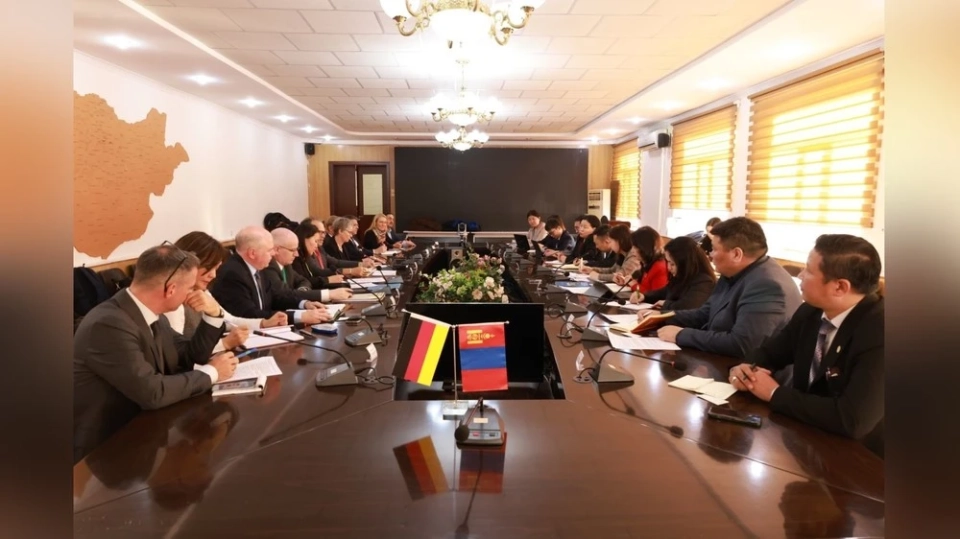
Mongolia and Germany Discuss the Implementation of Environmental Cooperation
During the meeting, upcoming negotiations on the development of cooperation between the two...
Ombudsman: The Return of the Death Penalty Contradicts the International Obligations of the Kyrgyz Republic
A recent working meeting of the Ombudsman of Kyrgyzstan, Jamilya Jamangbaeva, UN Resident...
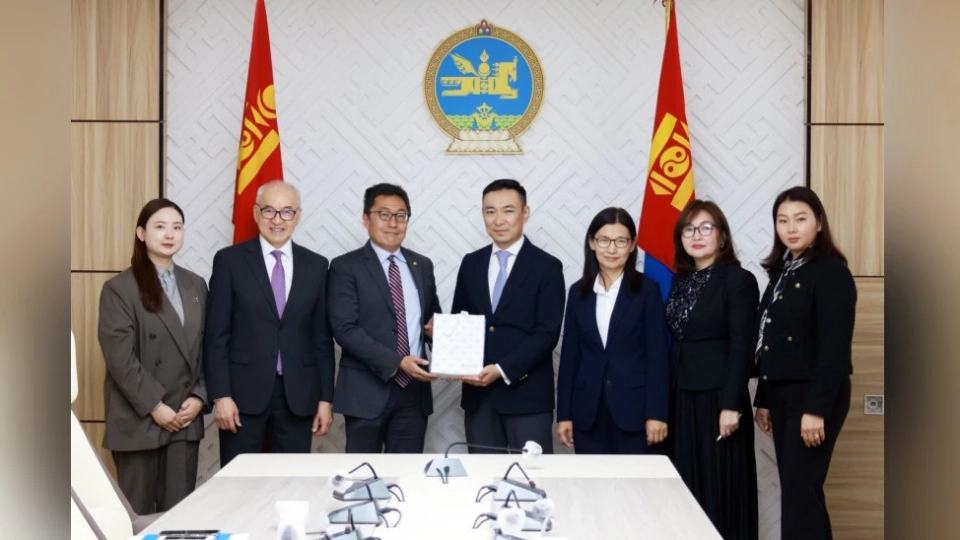
Mongolia to Collaborate with China, South Korea, and the UN to Combat Increasing Yellow Dust Storms
The meeting held on October 24, 2025, between Batbayar Shurenchuluun, the Secretary of State of...
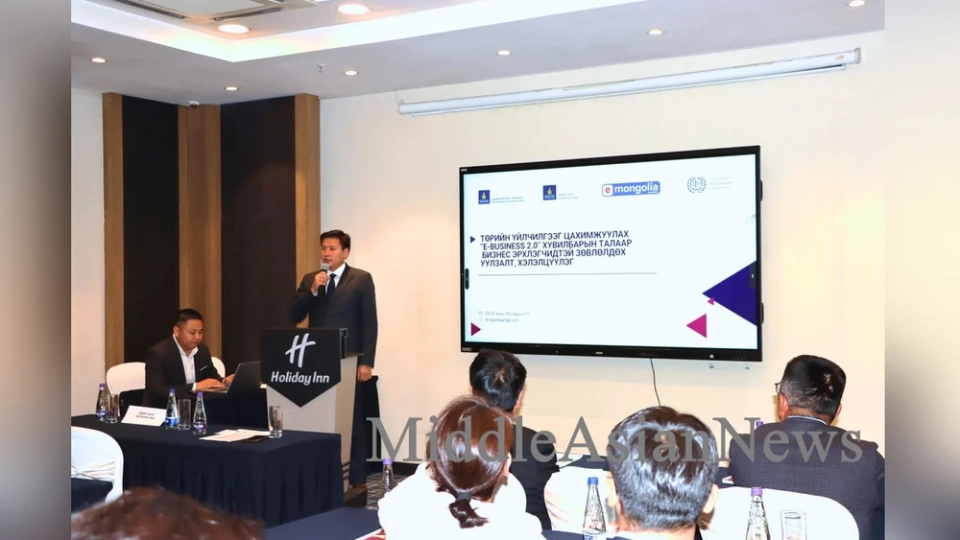
The ILO supports the development of the new platform e-business.mn in Mongolia
On October 17, 2025, a seminar for large enterprises was held in Mongolia, organized by the...
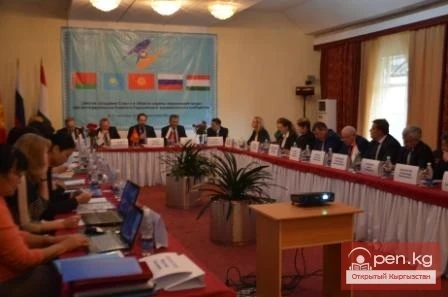
Meeting of the Council for Environmental Protection under the Eurasian Economic Union (EAEU)
On September 27, 2014, the Sixth Meeting of the Council on Environmental Protection under the...
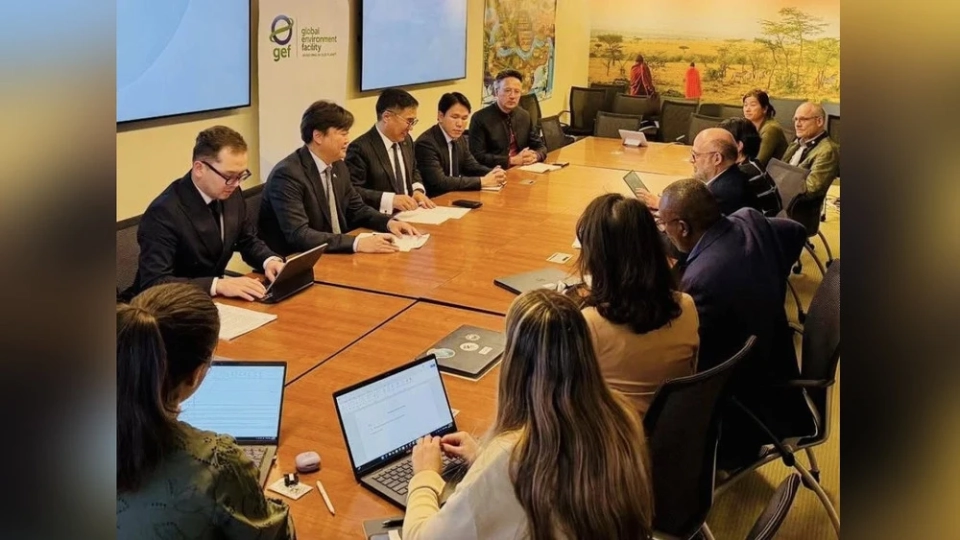
Mongolia Expands Cooperation with the Global Environment Facility
At the meeting, the need to strengthen and disseminate successful practices and results of...
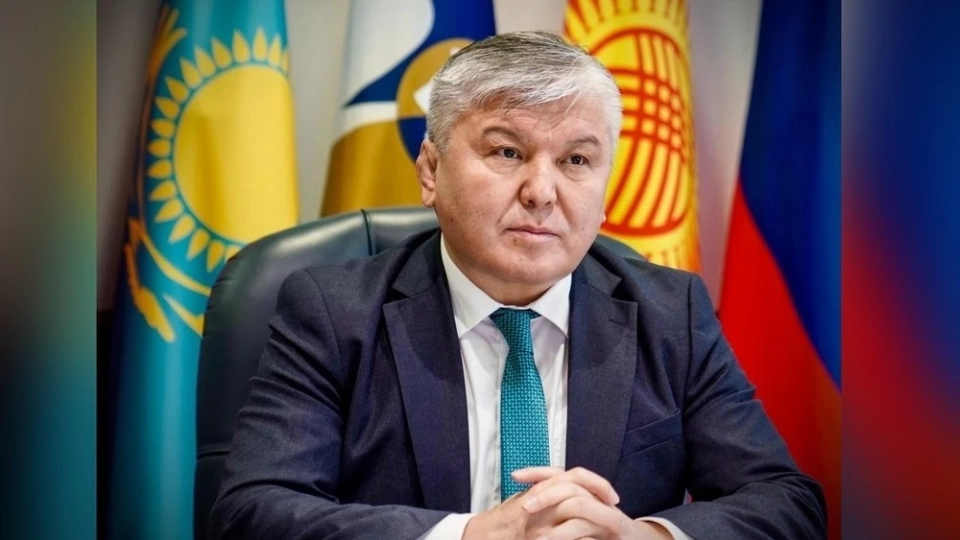
Choro Seitov: Kyrgyzstan Must Become a Country Connecting Regions
Speaking online at a logistics exhibition in Bishkek, he emphasized that Kyrgyzstan aims to change...
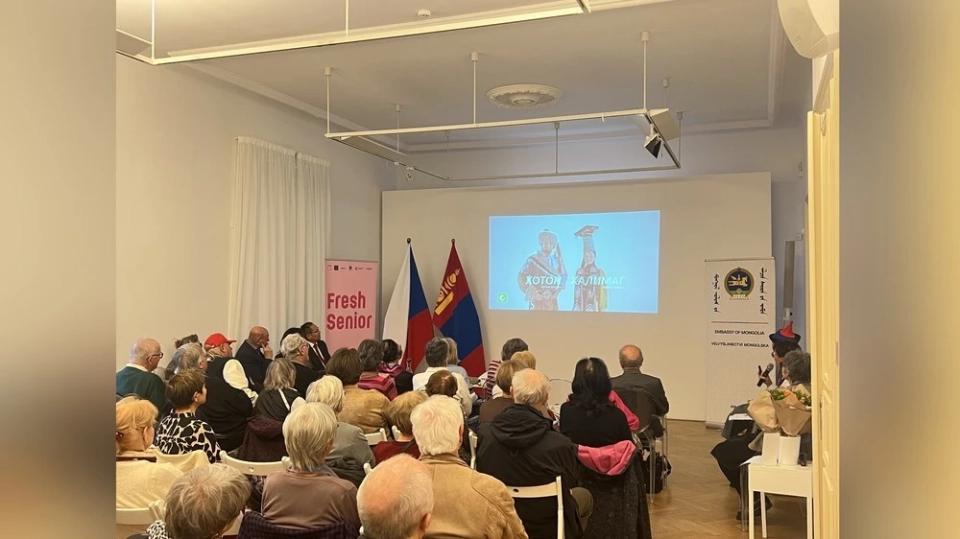
The Embassy of Mongolia held a cultural event in Prague showcasing national art
At the event, the Ambassador of Mongolia to the Czech Republic, Hansukh Damdin, delivered a speech...
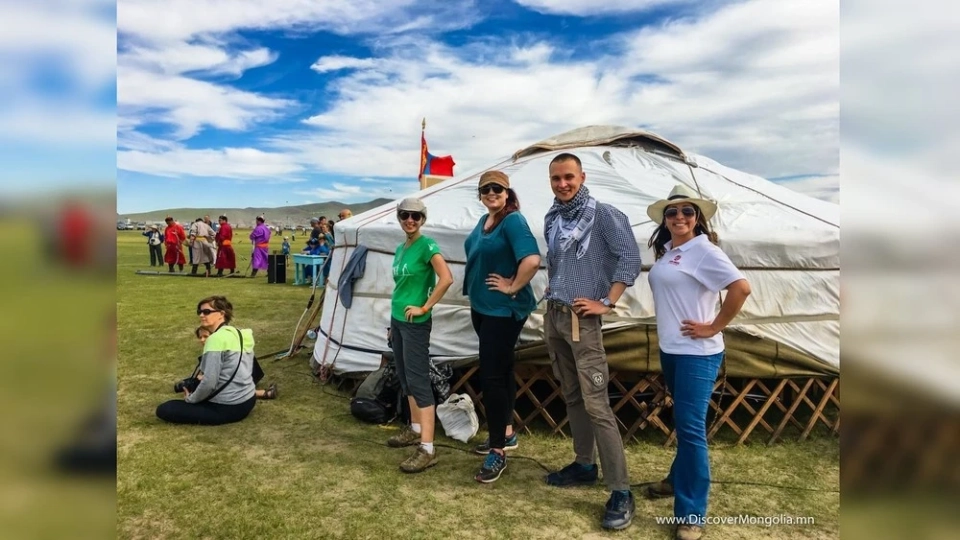
This year, Mongolia was visited by more than 750,000 foreign tourists.
Based on the data obtained, it can be noted that among foreign tourists visiting Mongolia,...
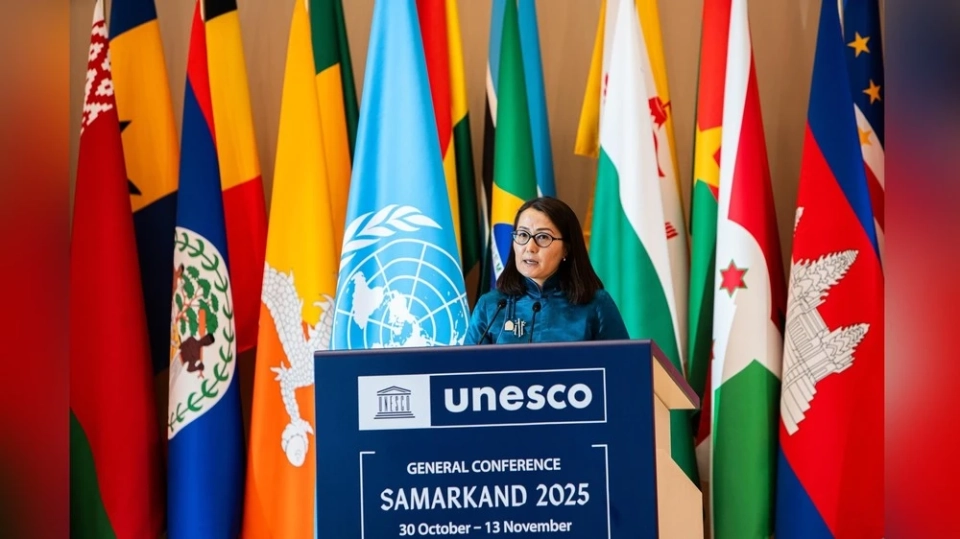
Mongolia participates in the 43rd session of the United Nations General Conference on Education, Science and Culture (UNESCO)
Nyamkhuu Ulambayar During the general debates of the session held on November 1, Nyamkhuu...
Kulubaev: Kyrgyzstan is interested in attracting American investments
Negotiations between the Foreign Minister and the American Ambassador...
Kyrgyzstan participated in a seminar on updating English language teacher training programs
In Kyrgyzstan, representatives of the country participated in a seminar organized by the British...
In Tatarstan, they revealed which countries' migrants are deported the most.
At a round table in the House of Friendship of Peoples in Kazan, the migration policy of Tatarstan...
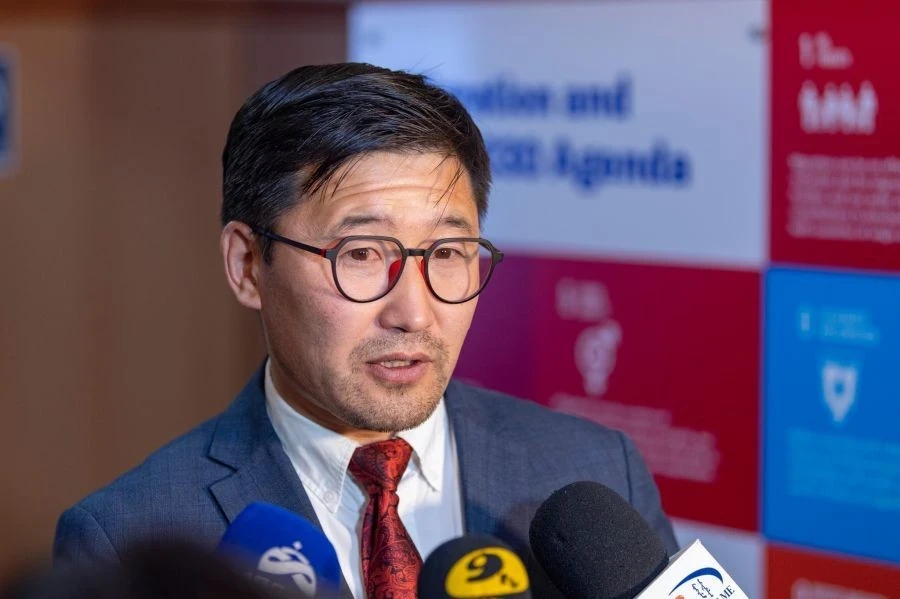
C. Munkhnasan: The Livestock Population Exceeds Pasture Resources
At the conference, current issues of pasture livestock farming, existing problems and...
Central Asian countries launched the "One Health" program
In Central Asian countries, the "One Health" program has been initiated, as reported by...
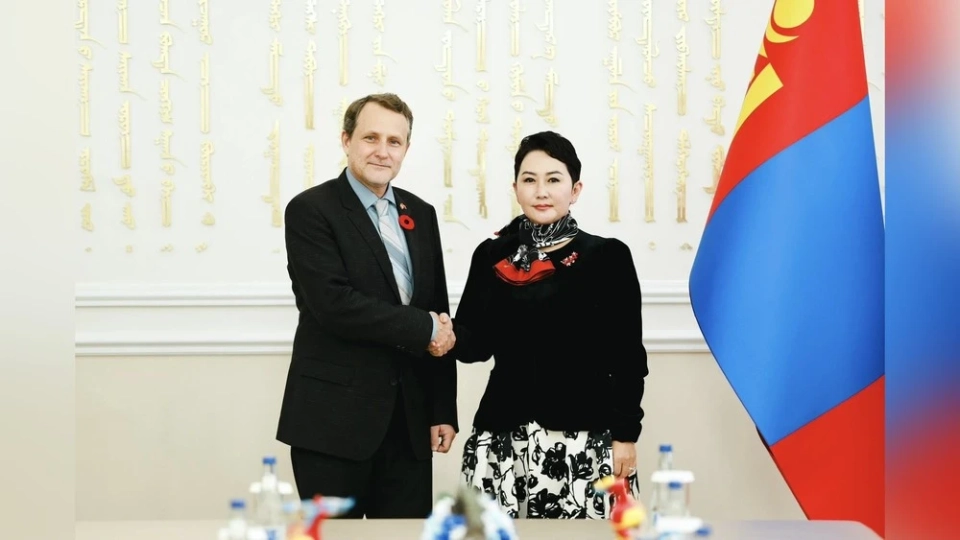
The Canadian Ambassador has commenced duties in Mongolia
Minister Batzetsgeg emphasized the importance of strengthening relations with Canada, regarded as...
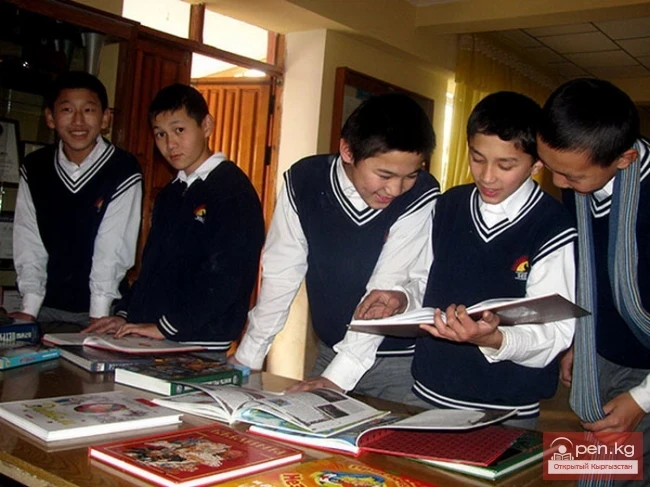
In the framework of implementing multilingual education in Kyrgyzstan
From September 19 to 21, 2014, a seminar on planning the activities of university innovation...

Population of Kyrgyzstan as of January 1, 2013
Population of Kyrgyzstan Thanks to the fundamental changes that occurred in Kyrgyzstan after the...
